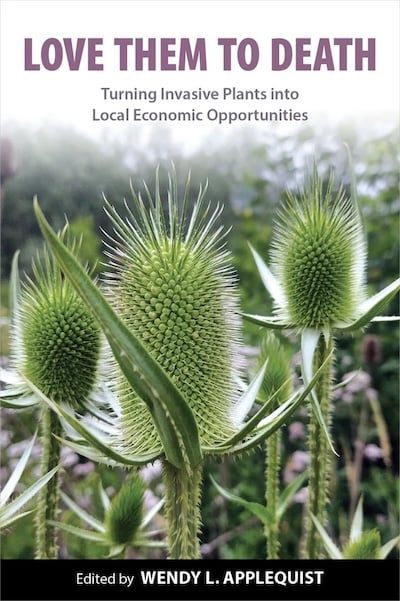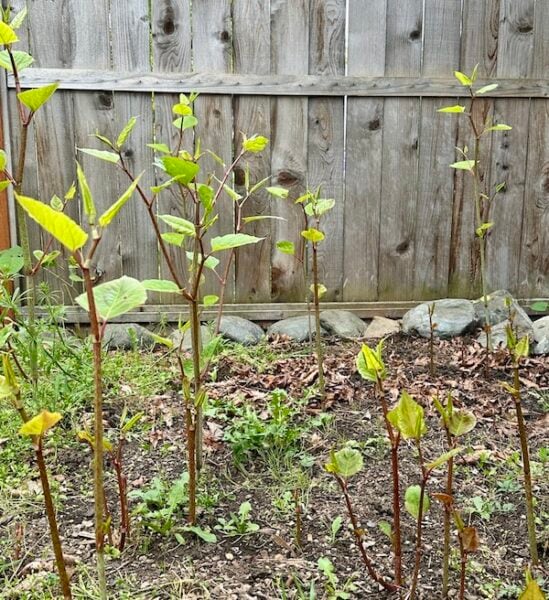
I was once told that a weed is simply a plant out of place.
Indeed, one person’s weed may be another person’s precious resource.
In Love Them to Death: Turning Invasive Plants into Local Economic Opportunities, editor Wendy L. Applequist has assembled a diverse mix of essays documenting the many ways that “invasive” species are being reinvented (or rediscovered) as valuable commodities.
From kudzu (the vine that ate the south) to Japanese Knotweed (pictured below) to the thistle shown above, so-called invasive species are everywhere, thanks in part to the well-meaning but ultimately misguided efforts of our ancestors to beautify or improve upon their environments. Plants were one of humanity’s earliest souvenirs.

A number of essays serve as useful reference guides to plant species, such as a list of plants used for Chinese medicine, plants used as culinary ingredients and plants that provide general medicinal value.
Did you know that kudzu can be turned into food and baskets and animal forage? The organization Kudzu Culture has created a growing industry around harvesting kudzu root.
And that Japanese knotweed (itadori) is edible and fermented in Japan?
The term “invasivore” has arisen as a growing number of people focus on eating invasive species as a way of turning something widely viewed as a waste of space into a meal.
So before you spray anything toxic on the St. John’s Wort growing in your backyard, consider its intrinsic value as an aid for depression or stomach cramps.
And maybe also consider the fact that invasive species are simply plants out of place.
In a wonderful essay on using vines for basketweaving author Katie Grove writes:
I reject the ethic that the best part of making things with invasive plants is that you can harvest them indiscriminately without guilt. We may have the ultimate goal of removing wisteria from an area, but there are many paths to get to that goal. In the end I maintain that what we do matters — but how we do it matters more. … By approaching harvest as a slow practice and expressing gratitude for the vines in the same way we would for a treasured native species, it gives foragers the opportunity to embody open mindedness and kindness — qualities that can serve us well in any aspect of life.
Love Them to Death is a thoughtful and educational read for anyone who wonders how to develop a healthier relationship with the “weeds” we share our lawns and gardens with.
John is co-author, with Midge Raymond, of the mystery Devils Island. He is also author of the novels The Tourist Trail and Where Oceans Hide Their Dead. Co-founder of Ashland Creek Press and editor of Writing for Animals (also now a writing program). More at JohnYunker.com.
